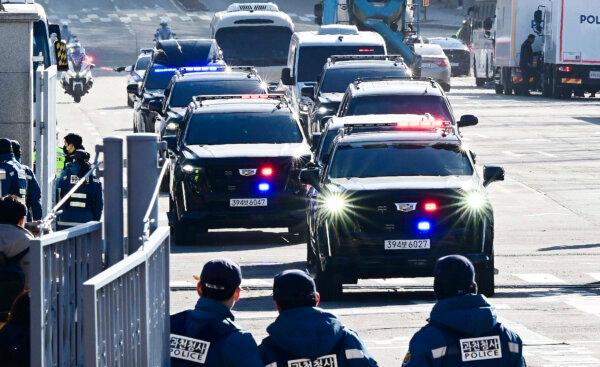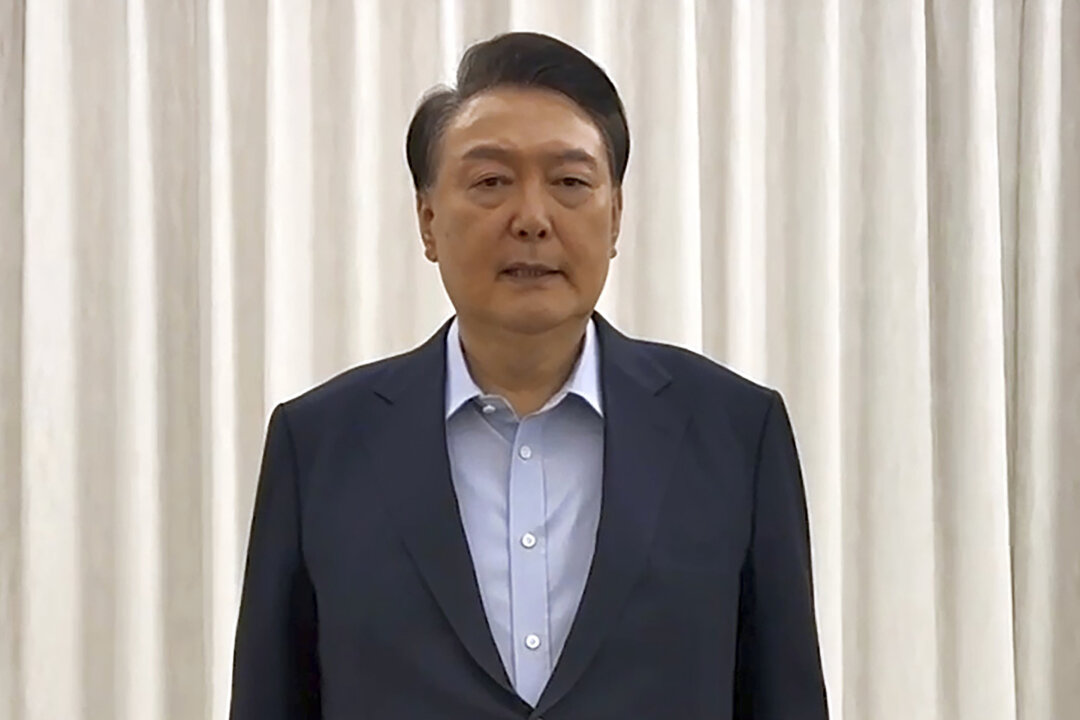President Yoon Suk Yeol faces charges of insurrection and abuse of power over his short-lived martial law declaration.
Anti-corruption officials who are investigating South Korea’s suspended president, Yoon Suk Yeol, over his short-lived martial law declaration, said on Jan. 16 that he had failed to attend a second round of questioning.
Law enforcement officers transported Yoon from his official residence in Seoul, South Korea, to the headquarters of the Corruption Investigation Office for High-ranking Officials (CIO) on Jan. 15 after he refused to cooperate with investigators for weeks.
Yoon is currently suspended from office, awaiting a court decision on potential permanent expulsion after lawmakers voted to impeach him.
The CIO—which is heading a joint investigation with the police and the military over whether Yoon’s martial law declaration amounted to attempted rebellion—confirmed that his questioning was due to resume at 2 p.m. local time on Jan. 16.
The agency stated that Yoon’s lawyer notified the state anti-corruption agency that he would not be attending about 10 minutes before questioning was due to begin, South Korea’s Yonhap News Agency reported.
Yoon’s lawyer Yoon Kab-keun told the media outlet earlier on Jan. 16 that the president would not be attending, according to Yonhap.
The lawyer said the president’s health was a factor in his refusal to cooperate with questioning. His attorney did not provide further details.
“President Yoon is not well and fully explained his position yesterday so there is nothing more to be interrogated about,” he told Yonhap.
Yoon exercised his right to remain silent on Jan. 15 as he faced more than 10 hours of questioning.
Authorities have 48 hours to question Yoon, after which they must release him or seek a warrant to detain him for up to 20 days. Investigators are expected to move to place him under arrest in the coming days.
Yoon is facing charges of insurrection and abuse of power stemming from his declaration of martial law on Dec. 3, 2024, which was the first such declaration since 1980.
At the time, Yoon said martial law was necessary to combat threats from “anti-state forces” within the opposition.
In a statement last month, the South Korean leader said the opposition was “paralyzing” judicial operations as well as the executive branch and accused members of the opposing parties of sympathizing with North Korea.
Yoon reversed the declaration just six hours later after the National Assembly, with 190 of its 300 members present, unanimously voted to oppose the decree.
Although short-lived, the martial law announcement sparked widespread concern and prompted tens of thousands of people to take to the streets across the country in protest.
Yoon, who previously served as South Korea’s chief prosecutor, denies the declaration amounted to insurrection and has defended his actions, saying they were necessary to protect the country’s democracy.

His lawyers have argued that the detention warrant issued by the Seoul Western District Court is invalid because the court lacked jurisdiction. They have asked the Seoul Central District Court to review the legality of the detention and to consider releasing Yoon.
A conviction for rebellion carries a maximum penalty of death or life in prison in South Korea.
Yoon has been suspended from official duties since Dec. 14, 2024, after the opposition-led National Assembly voted to impeach him over his martial law attempt.
South Korea’s Constitutional Court is due to hold a second hearing in his impeachment trial to determine whether to formally remove him from office or reinstate his presidential powers.
Yoon’s arrest on Jan. 15 followed an hours-long standoff with law enforcement officials who swooped into his fortified hillside villa in Seoul.
Previously, the former prosecutor had failed to appear for questioning before corruption investigation officials and turned police away from his home, citing a law that protects locations potentially linked to military secrets from search without the consent of the person in charge.
In a video message addressing the nation shortly before his arrest, Yoon said he had agreed to appear before the CIO to prevent what he called the risk of “unsavory bloodshed” but maintained that it was an illegal investigation and an invalid arrest warrant.
Reuters and The Associated Press contributed to this report.

